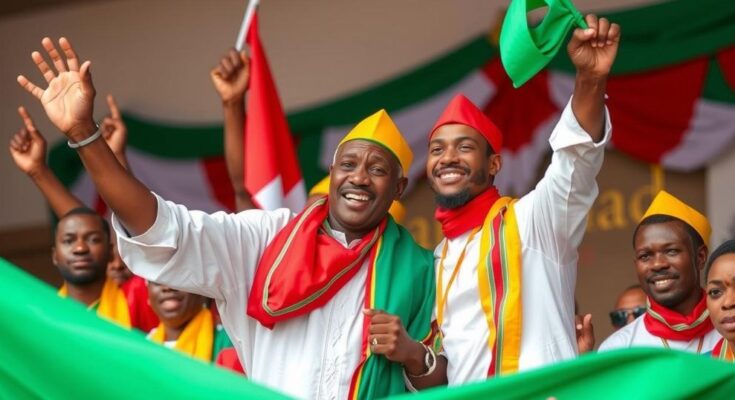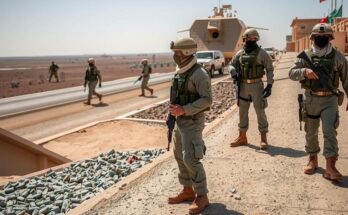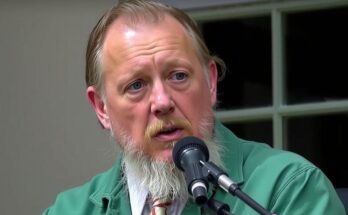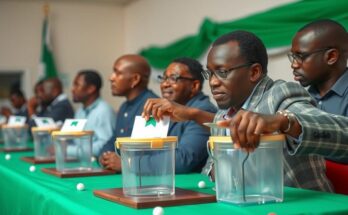The ruling Patriotic Salvation Movement of Chad has won a majority in the recent parliamentary elections, garnering 124 seats out of 188, amid a 51.5% voter turnout. The election was characterized by a boycott from major opposition parties and is seen as the final step in adjusting Chad’s governance towards democratic practices following military rule since 2021. This electoral process is underlined by the country’s ongoing security struggles and the call for decentralization of authority.
Chad’s ruling party, the Patriotic Salvation Movement, has secured a significant majority in the recent parliamentary election, winning 124 out of 188 seats, as provisional results indicate. This election, which witnessed a voter turnout of 51.5%, was marked by the notable absence of the principal opposition parties, who boycotted the proceedings. The electoral event, serving as the country’s first parliamentary election in over a decade, represents a critical phase in Chad’s ongoing transition to democracy following the military ascension of Mahamat Idriss Deby in 2021.
Mahamat Idriss Deby’s takeover succeeded the death of his father, the long-standing president Idriss Deby Itno, who ruled for thirty years. Deby has framed this parliamentary election as a pathway toward decentralization, which he asserts is long anticipated by the Chadian populace, aimed at redistributing power across regional and municipal authorities. However, the boycott by over ten opposition parties, including the Transformers party, has raised questions about the electoral legitimacy, especially given the discontent surrounding last year’s contested presidential election results.
In addition to the parliamentary vote, regional and municipal elections were conducted. This political process is crucial as Chad currently faces significant security challenges, including threats from Boko Haram in the Lake Chad region and shifting military relations with France. The main oppositional factions have yet to issue responses regarding the election outcomes.
Chad has historically experienced a centralized form of governance, particularly under the latter’s military rule. The transition to democracy has been anticipated since Mahamat Idriss Deby assumed power following the death of his father, who led for three decades. The nation has struggled with a myriad of issues, including conflicts with extremist groups and geopolitical tensions. The latest parliamentary election signifies the culmination of efforts toward a more democratic structure, amid widespread calls for greater distribution of authority at local levels to enhance governance efficiency.
In conclusion, the recent parliamentary elections in Chad have resulted in a decisive victory for the ruling Patriotic Salvation Movement, while raising concerns regarding the validity of the election process due to the significant boycott by opposition parties. The results mark a pivotal moment in Chad’s quest for democracy, set against the backdrop of ongoing national security challenges and a push for administrative decentralization. The effectiveness of this electoral outcome in fostering genuine governance remains to be seen amid continued scrutiny.
Original Source: www.trtworld.com




